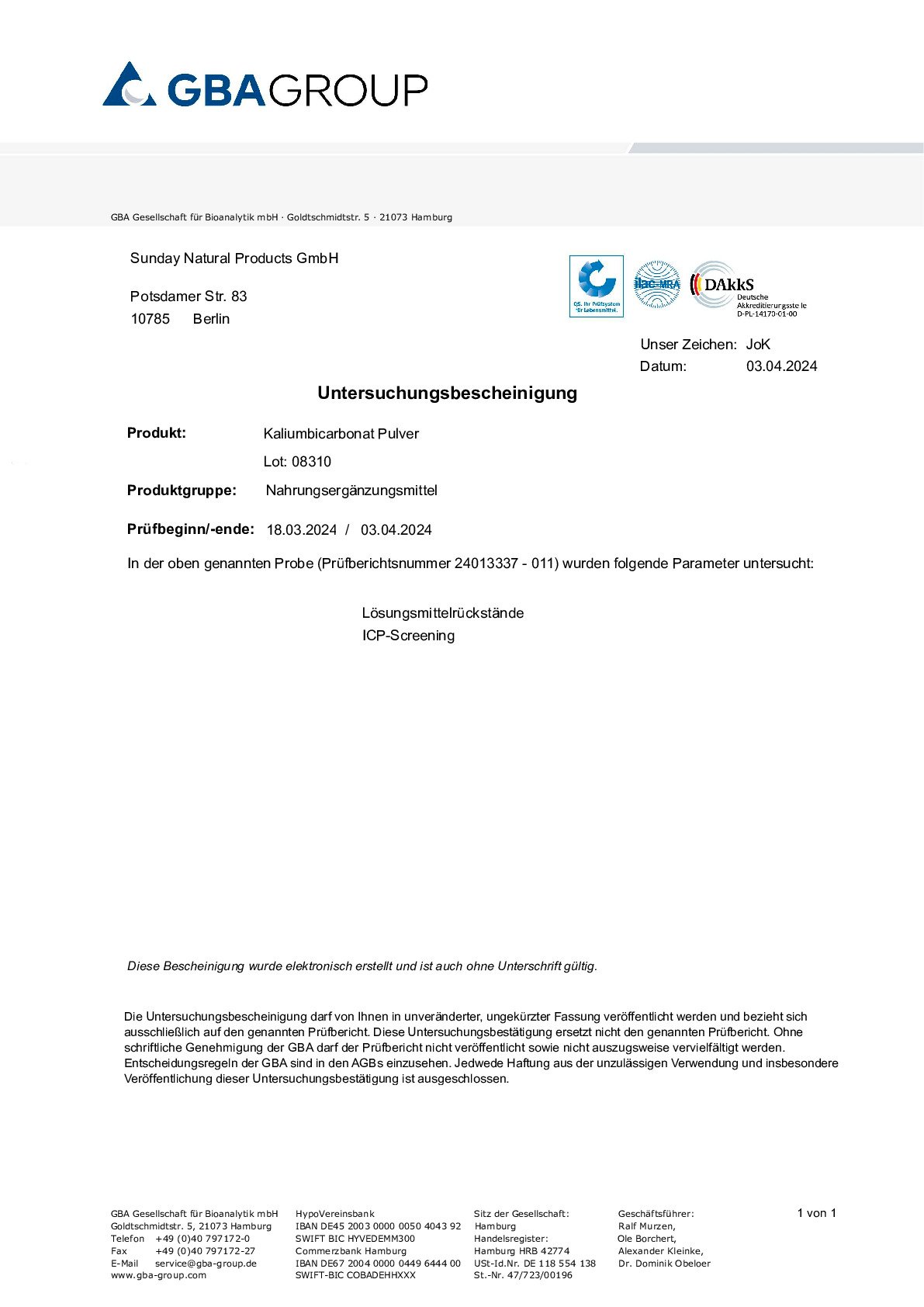A balanced acid-base ratio is one of the most important prerequisites for the health of the entire body. All metabolic processes in the body's cells and the transport of substances between cells and tissues are influenced by the ratio of acids and bases. Due to its enormous importance for human health, the acid-base system has numerous buffer systems which serve to regulate a constant pH value in the blood, in the intercellular tissue and within the cells. Bicarbonates, which are formed by specialised cells in the stomach, are an important component of this system. An unhealthy lifestyle, characterised by stress, an unhealthy diet and environmental pollution, can disrupt the balance and lead to latent hyperacidity in the body.
Potassium is the third most abundant mineral in the body and is one of the essential (vital) electrolytes. Around 98% of all potassium in the human body is found intracellularly (i.e., inside the cell), while its important counterpart, sodium, is mainly concentrated extracellularly. A balanced ratio of these two minerals is an important basis for a large number of bodily reactions and (enzymatic) metabolic processes. However, our modern, high-salt diet easily shifts the balance towards a sodium surplus. Excess sodium also favours the excretion of potassium via the kidneys. Increased sport and everyday stress also increase the overall need for minerals and as potassium cannot be stored in the body, we are dependent on a sufficient daily supply of the mineral in order to maintain the balance of important body systems.
According to the European Food Safety Authority (EFSA):
Potassium contributes to:
- normal function of the nervous system,
- normal muscle function,
- the maintenance of normal blood pressure.



















